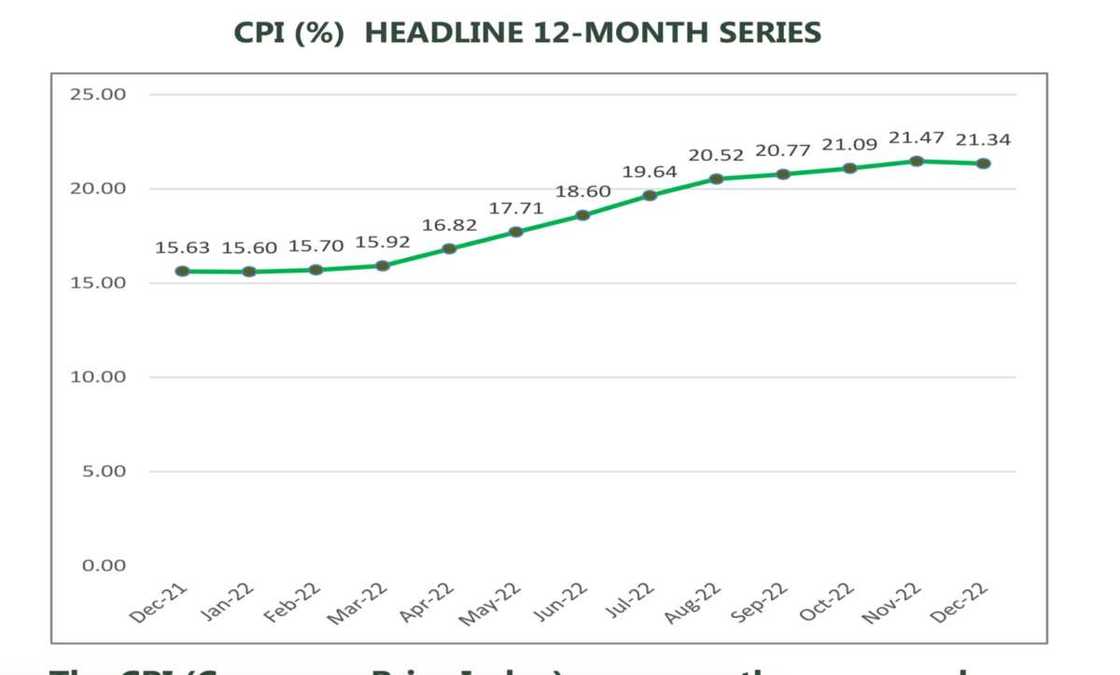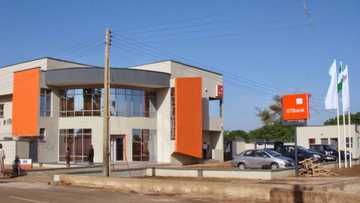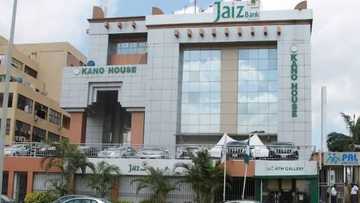Nigerian Workers Count Salary Losses As Inflation Ends 2022 at 21.34 Percent
- The latest data from the National Bureau of Statistics shows inflation figures ended 2022 at 21.34 percent
- Except for the month of December 2022, Nigeria's inflation rate increased monthly during the year
- The year's soaring inflation caused huge losses in the value of Nigerian workers' salaries
PAY ATTENTION: Click “See First” under the “Following” tab to see Legit.ng News on your Facebook News Feed!
Nigeria’s inflation rate dropped to 21.34% in the month of December 2022 from 21.47 percent recorded in November 2022.
This is the first time Nigeria’s headline inflation rate dropped on a month-on-month basis in 2022.
The National Bureau of Statistics (NBS) announced the drop on Monday, 16 January 2022 in its latest Consumer Price Index report.

Source: Facebook
Food Inflation
Food inflation, a highly followed indicator of how poor Nigerians are, ended the year at 23.75% in December 2022.
PAY ATTENTION: Share your outstanding story with our editors! Please reach us through info@corp.legit.ng!

Read also
GTBank parent company records over N214bn profit in 2022, but government tax cut it down by 23.45 percent
Punch reports that the rise in food inflation was caused by increases in prices of Bread and cereals, oil and fat, potatoes, yam and other tubers, fish, food product.
States that ended the year with the highest inflation rate
In December 2022, the inflation rate on a year-on-year basis was highest in Bauchi (23.79%), Kogi (23.35%), Anambra (23.13%), while Taraba (18.98%), Osun (19.09%) and Kwara (19.18%) recorded the slowest rise in headline year-on-year inflation.
On a month-on-month basis, however, December 2022 recorded the highest increases in Oyo (3.48%), Abuja (3.05%), Sokoto (2.58%), while Ebonyi (0.11%), Ekiti (0.68%) and Nasarawa (0.70%) recorded the slowest rise on month-on-month inflation.
States that ended the year with the highest food inflation rate
In December 2022, food inflation on a year-on-year basis was highest in Kwara (27.90%), Imo (26.94%), and Ebonyi (26.28%), while Sokoto (20.90%), Taraba (21.59%) and Cross River (21.71%) recorded the slowest rise in year-on-year food inflation.
On a month-on-month basis, however, December 2022 food inflation was highest in Sokoto (3.38%), Oyo (3.10%), and Kaduna (2.97%), while Nasarawa (0.06%), Osun (0.70%) and Kogi (0.76%) recorded the slowest rise on month-on-month inflation.
What Nigerian workers lose over rising inflation in 2022
Economists calculate workers’ real income by dividing their wages by the annual inflation rate. It is calculated as [Wages / (1 + 21.34%) = Real Income].
Nigeria's minimum wage is N30,000 monthly or N360,000 yearly.
Using the above formula, an average Nigerian worker’s annual salary of N360,000, when adjusted for inflation, is actually N24,723 monthly or N296,676 yearly.
Legit.ng recent market survey revealed that a bag of foreign rice (Aroso) sells for N39,000 while a bag of rice (Agric) sells for N36,000.
Naira records first loss of 2023 as expert predicts N1000 to one dollar rate
Meanwhile, Legit.ng had earlier reported that Naira recorded its first loss in 2023, as the foreign exchange market resumes full activities.
The Nigerian currency drop in value was recorded across official and black market foreign exchange markets.
Naira experienced significant losses in 2022, and experts have shared their predictions for 2023.
Source: Legit.ng




